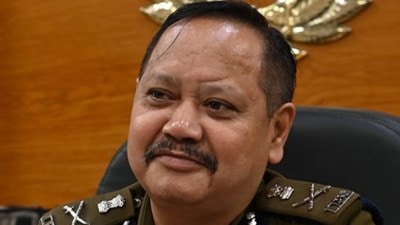The Union Health Ministry conducted a draw of lots on Tuesday for the selection of 24 part-time members of the National Medical Commission (NMC) and its four autonomous boards.
The previous appointments of the part-time members happened in December 2022 for a term of two years; the posts were lying vacant for at least six months.

The positions of full-time members, including the post of presidents of three of the four autonomous boards, however, have remained vacant for nearly nine months now.
Story continues below this ad
The Centre appointed Dr Abhijat Sheth, currently heading the National Board of Examinations in Medical Sciences that conducts the entrance exams for PG and superspeciality medical courses, as the chairperson of the NMC over the weekend.
As per the rules, 10 part-time members for the commission are selected from among the nominees from States and Union Territories.
Members nominated by Gujarat, Rajasthan, Himachal Pradesh, Andaman & Nicobar Islands, Andhra Pradesh, Mizoram, Meghalaya, Jharkhand, Chandigarh and Madhya Pradesh were chosen through the draw of lots.
Another nine part-time members for NMC — from among those nominated by state medical councils — were chosen from West Bengal, Karnataka, Nagaland, Chhattisgarh, Tripura, Jammu & Kashmir, Assam, Manipur and Uttarakhand.
Story continues below this ad
The part-time posts on the four autonomous boards were also filled through this process from among the nominees of medical councils of Arunachal Pradesh, Odisha, Haryana, and Punjab.
The expert from Jammu and Kashmir was chosen for the search committee that looks for suitable candidates for positions of chairperson and other members of the regulatory body.
The National Medical Commission consists of 33 members who lay down policies for medical education and ensure coordination among the four autonomous boards. According to a former member, all changes to curricula, minimum requirements for setting up different courses and policies on fees should go through this board.
Earlier this month, The Indian Express had reported that this 33-member commission had not met since August or September last year.
Story continues below this ad
In addition to the Commission, the regulatory body is made of four autonomous boards with five members each — one president, two whole-time members, and two part-time members.
The Undergraduate Medical Education Board is responsible for developing the standards of medical colleges, the curricula for UG courses, frame policy guidelines for medical colleges and facilitate training of faculty members teaching UG courses. The PG Medical Education Board does the same for PG courses across the country.
The Medical Assessment and Rating Board ensures that colleges follow the minimum requirements set by other boards and grants permissions to colleges to continue their courses, add seats or new courses.
The Ethics and Medical Registration Board works to promote and regulate ethical behaviour among registered medical practitioners and create a national medical register of all such professionals across the country.
Story continues below this ad
The vacancies in the country’s apex medical education regulatory body have serious implications for the overall functioning of medical education in India, especially conducting inspections for starting new colleges, adding seats or renewing existing seats.
This year, the body decided to conduct only virtual inspections — looking at CCTV feeds and biometric attendance records of faculty members — for the new colleges or seats.
The process of starting new colleges or adding seats was halted by the National Medical Commission amid a CBI probe into allegations of corruption in regulation of medical colleges.









